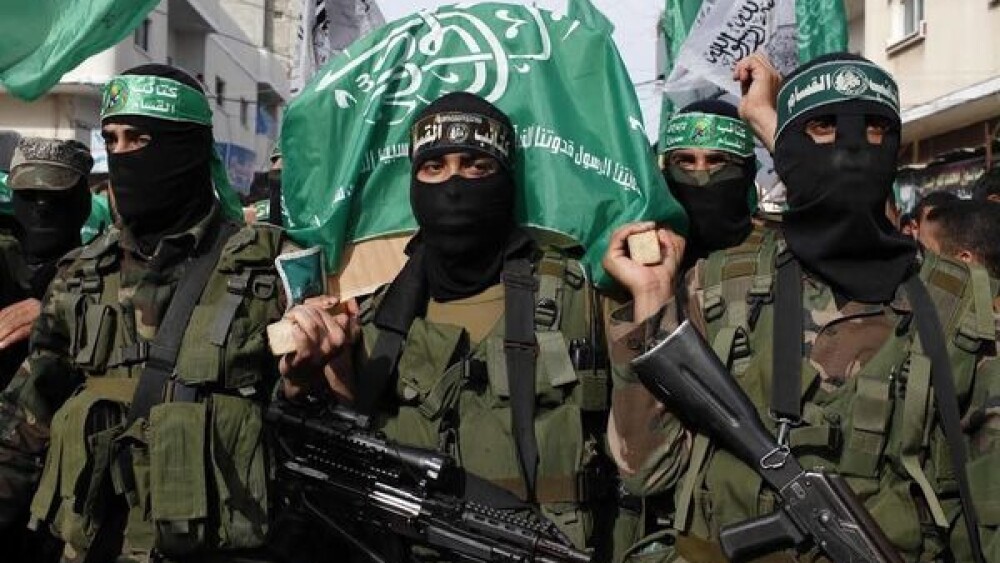The threat of Islamist extremism is no longer confined to the Middle East. It has metastasized into cities across Europe, the Americas, and beyond, with a wave of attacks, riots, and hate crimes fueled by the rhetoric of jihadist groups and their ideological allies on the left. This threat is directed squarely at democracies, open societies shaped by Judeo-Christian values, and any state or people who resist Islamist domination.
Groups such as Hamas, Hezbollah, and Palestinian Islamic Jihad are not resistance movements but proscribed terrorist organizations, formally recognized as such by governments like the United Kingdom and the United States. They are part of a broader network, often supported by Iran, which uses proxy organizations to spread violence globally. This dovetails with the continued resilience of Islamic State and Al Qaeda affiliates.
The U.S. Department of Homeland Security’s 2025 Homeland Threat Assessment is explicit: International conflicts such as the Israel-Hamas war are galvanizing violent extremists across the ideological spectrum and sustaining a “high” terrorism threat environment inside the United States.
International conflicts such as the Israel-Hamas war are galvanizing violent extremists across the ideological spectrum.
This danger has already turned deadly. On May 21, 2025, a gunman murdered two Israeli Embassy staffers, Yaron Lischinsky and Sarah Milgrim, outside the Capital Jewish Museum in Washington, D.C. The killer shouted pro-Palestinian slogans and later told police, “I did it for Palestine, I did it for Gaza.”
Only weeks later, in Boulder, Colorado, an Egyptian national hurled Molotov cocktails at a pro-Israel gathering. He admitted to targeting what he called a “Zionist group,” telling investigators he had been planning the attack for a year and would do it again.
Likewise, investigators believe that Robin Westman, who opened fire during a school-wide Mass at the Church of the Annunciation in Minneapolis, Minnesota, had expressed hatred toward various groups, including Jews.
These are not isolated incidents. They echo a pattern law enforcement has warned of for years: foreign ideological conflicts inspiring domestic actors to translate rhetoric into violence.
The United States is not alone. Protests in Europe increasingly turn violent. On September 22, 2025, thousands of protesters and strikers took to the streets in Milan in solidarity with Palestinians in Gaza. Some stormed the city’s central train station, clashing with police. The strike caused disruptions across Italy, with train and public transport delays in major cities including Rome and Milan. Dockworkers blocked Italian ports to stop arms transfers to Israel. Italian Prime Minister Giorgia Meloni condemned the violence, calling protesters “hooligans.”
In the United Kingdom, antisemitism has surged to unprecedented levels. The Guardian reported that police recorded the highest number of antisemitic hate crimes in a single year in 2024, many linked to pro-Palestinian rallies. The Community Security Trust reported that some demonstrations crossed into open glorification of terrorism.
In France, authorities warned that pro-Palestinian rallies were fueling “serious public disorder” and hate speech. French police dispersed demonstrations in Paris and other cities due to violence. Germany reported nearly a doubling of antisemitic incidents in 2024, much of it tied to Gaza war rhetoric.
These demonstrations illustrate the transnational reach of Islamist ideology: European democracies are being destabilized not only by foreign propaganda but also by their own citizens radicalized in solidarity with jihadist groups.
European democracies are being destabilized not only by foreign propaganda but also by their own citizens radicalized in solidarity with jihadist groups.
In Latin America, major capitals such as Buenos Aires and Mexico City also have experienced mass mobilizations in support of the Palestinian cause. In Buenos Aires, pro-Palestinian demonstrators attempted to storm the Israeli Embassy, with police firing tear gas to disperse the crowd. In Mexico City, thousands marched in what was billed as a solidarity protest but included chants endorsing violent “resistance.” These rallies often bring together student groups, unions, and leftist parties—demonstrating how Islamist rhetoric is amplified by other radical political currents.
These localized riots, shootings, and fire-bombings are part of a larger resurgence of jihadist violence. The Islamic State, once thought to be in decline, was the deadliest terror group of 2024, with affiliates expanding across Africa and Asia, largely recruiting off the Gaza conflict.
The Netherlands-based International Centre for Counter-Terrorism warns of a dangerous mismatch: the threat evolves while the global response wanes. Meanwhile, Iran continues to orchestrate its own terror network, using Hezbollah, Hamas, and Palestinian Islamic Jihad as global arms of its strategy. The American Jewish Committee documented how Iran’s support for these groups has led to increased instability in regions like Latin America and Europe.
What unites these incidents is not geography but rhetoric. Attackers in Washington, Boulder, Amsterdam, and elsewhere invoked the same slogans heard on Western streets and university campuses, such as “from the river to the sea” and “resistance by any means.”
As the Jerusalem Center for Public Affairs documented, “Palestinianism” has become an ideological Trojan horse: one that cloaks jihadist supremacism in the vocabulary of human rights, enabling Western radicals to launder Islamist violence as liberation.
“Palestinianism” has become an ideological Trojan horse: one that cloaks jihadist supremacism in the vocabulary of human rights.
This ideological pipeline—from protest chants to political violence—is what policymakers and security agencies must recognize. Islamist extremism is not only a foreign policy challenge. It is a domestic security crisis, destabilizing democracies from within.
The world now enters a new phase of extremism. Islamist movements and their leftist allies are targeting not only Israel but also open societies, pluralistic democracies, and all who resist their absolutist ideology. To ignore this threat is to invite more embassy attacks, more diplomat assassinations, and terrorism of more communities. Policymakers must confront Islamist ideology as a menace, strengthening democratic resilience and refusing to excuse terrorism cloaked in political slogans. The choice is clear: Either democracies defend themselves and their shared values, or they allow extremist movements to destabilize them from within.








